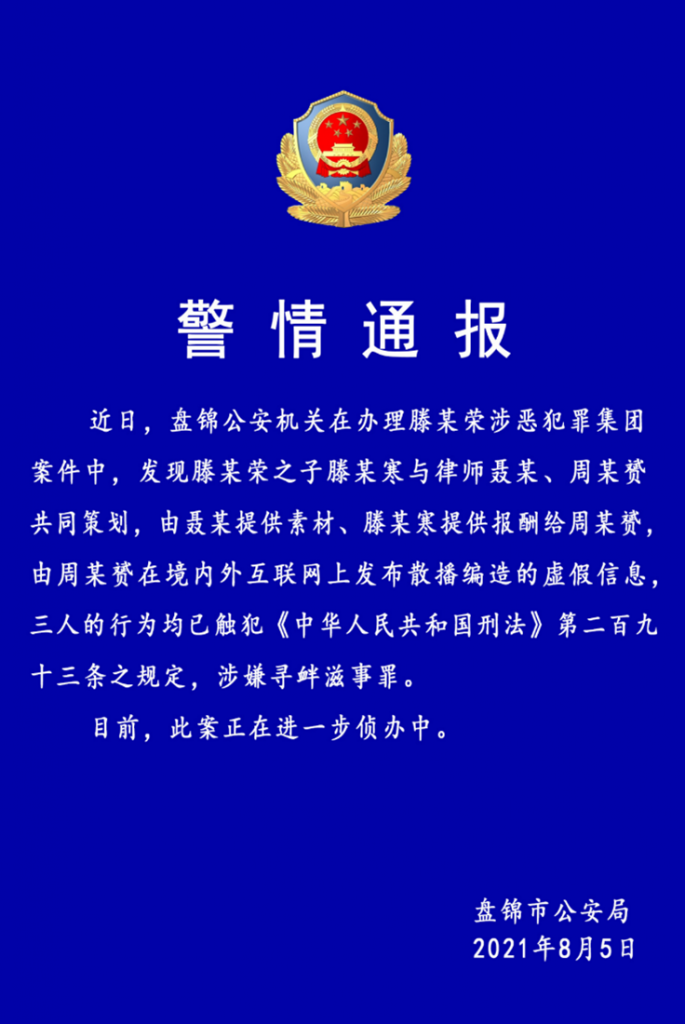Two young activists behind Terminus2049 sentenced and released
On May 11, 2021, Cai Wei (蔡伟) and Chen Gui (陈玫) were tried at the Beijing Chaoyan District People’s Court for picking quarrels and provoking trouble. In 2018, the duo started an online archiving project known as Terminus2049 with the goal of countering internet censorship. Their project archived articles on a wide range of subjects deemed sensitive in China, including China’s Me Too and labor movements. They even expanded to include censored articles about the COVID-19 pandemic from mainstream press and social media. As China’s draconian measures began to show success in containing the outbreak, it also ramped up control of criticisms online by covering up its earlier missteps during the initial lock-down.
Cai, Chen, and Cai’s girlfriend Tang were first placed under residential surveillance at a designated location in late April 2020. On June 12, Cai and Chen’s families received notification that the two had been formally arrested and detained at the Chaoyang District Detention Center. Their trial came more than a year later.
The sentences were announced three months after the conclusion of the trial. According to Chen’s brother, the court adopted the sentencing recommendations from the procuratorate and gave each one year and three months’ imprisonment on August 13, 2021. Because of the lengthy time already spent at the detention center, Chen and Cai were released on August 15.
Two lawyers accused of picking quarrels and provoking trouble
Defense lawyers in China often find themselves accused of criminal wrongdoing during trials in which they are representing defendants. The latest example is that of two lawyers, Zhou Xiaoyun (周筱赟) of Guangzhou and Nie Min (聂敏) of Beijing, who were taken into custody by the Panjin police from Liaoning Province.
In a public announcement released by the Panjin Police Bureau on August 5, the police vaguely accused Zhou and Nie of conspiring with Teng, the son of a defendant they are representing, to spread false information on the internet.

However, according to Zhou’s friends, who are also lawyers, the supposedly false information is a short video clip taken at the elder Teng’s trial showing that Teng is accused of loan fraud. The clip is supposedly a recording from a live online broadcast on the China Court Trial Online, an official site dedicated to trial transparency in China.
In the clip, the Dawa district procurator can be heard making a statement to the court that “among the judiciary, accepting bribes and not doing anything is an indication that judicial staff ensure an ethical bottom line.”

Zhou was summoned by the Panjin police and placed under residential surveillance at a designated location on July 31. Nie was taken from her home in Beijing, according to an interview her family gave to Caixin, then was driven to Panjin on August 3. Her exact whereabouts are unclear. Their lawyer Zhao, in an interview given to The Paper, said he was able to meet with both under supervision at a district police substation on August 7. Both are well, expressed shock at the charges, and asserted their innocence.
Soon after the interview, Zhou’s family said that they received a response from the Panjin Police Bureau that the request to grant Zhou bail has been denied.
